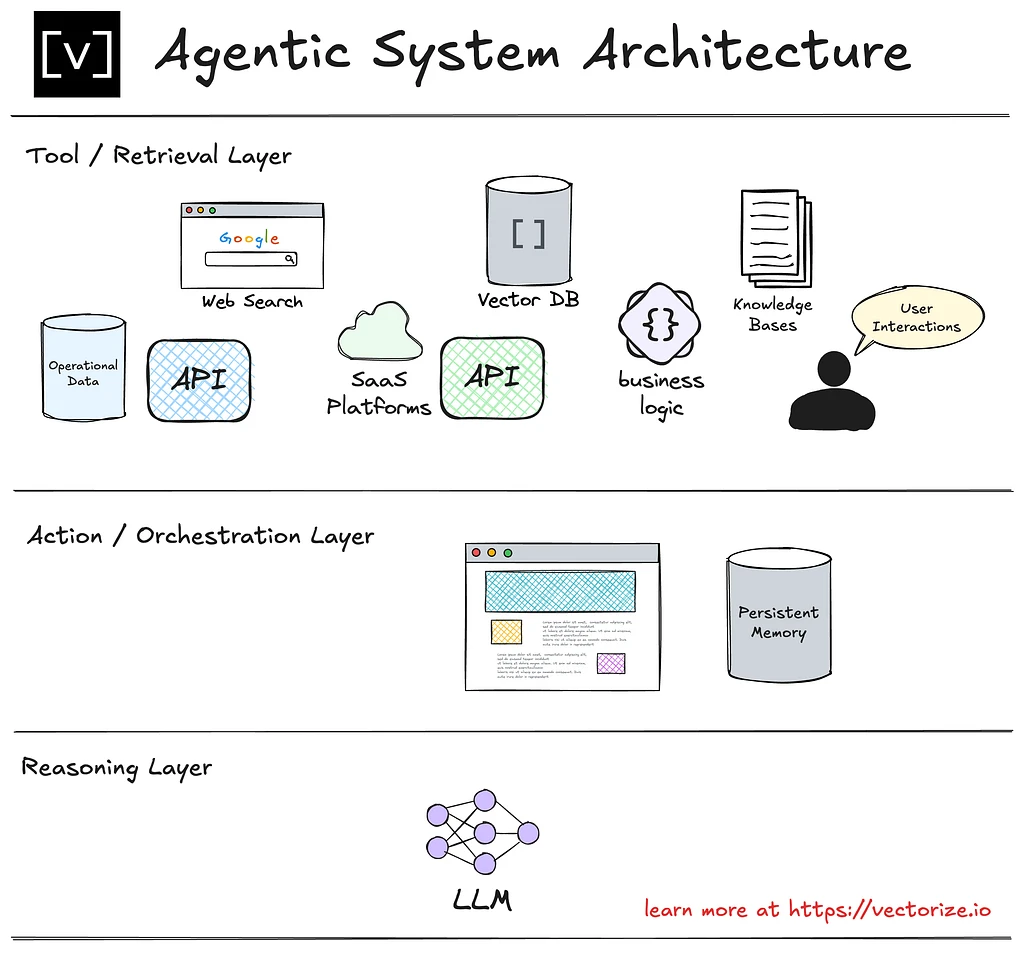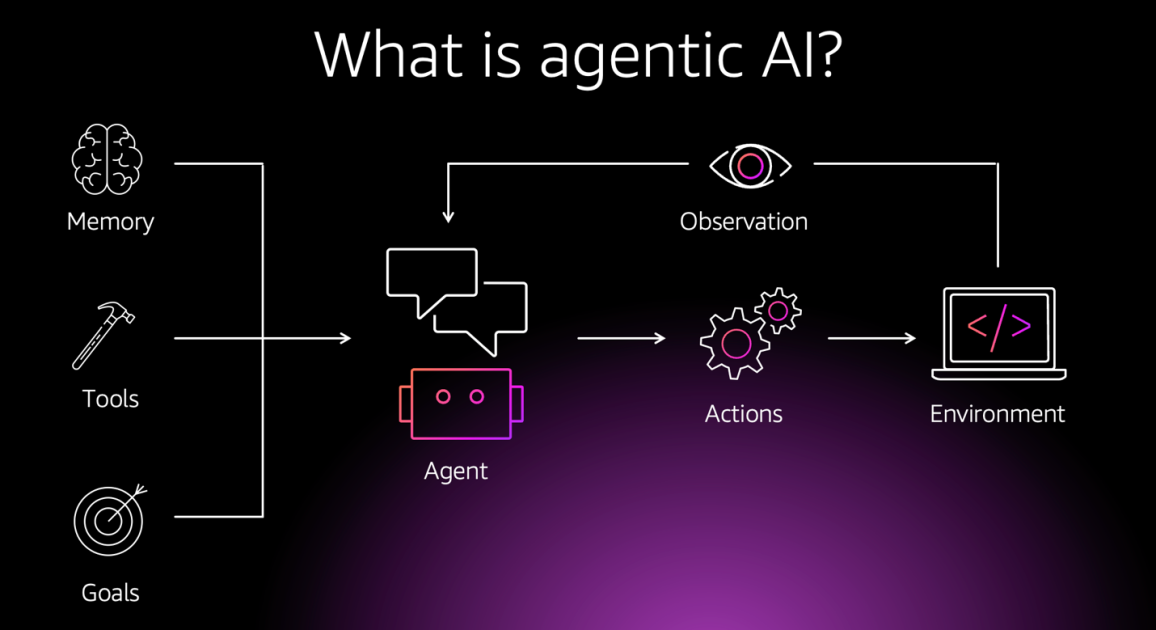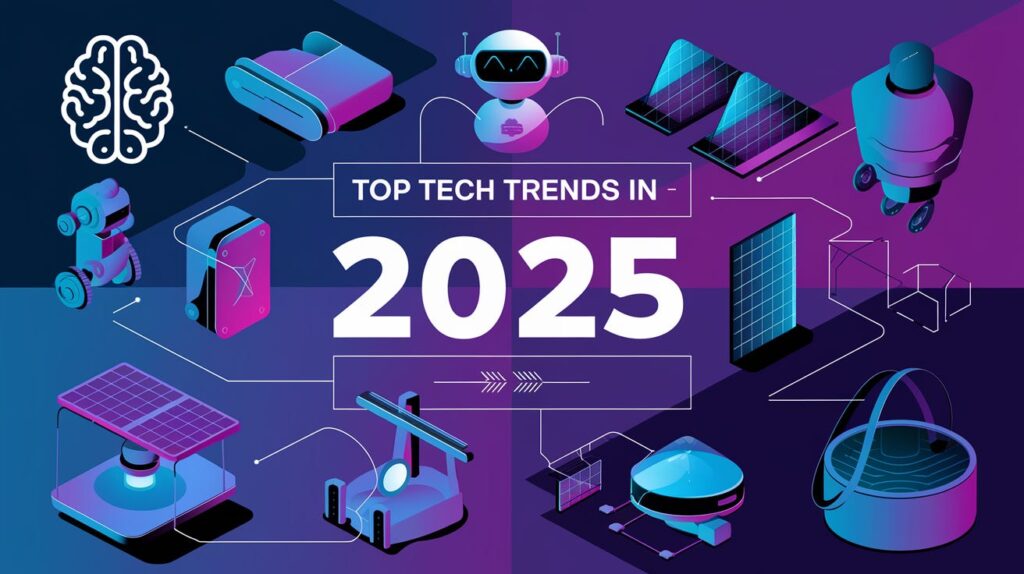Introduction
As we move through the second half of 2025, the pace of innovation in the tech world has accelerated dramatically. From autonomous AI systems to major advancements in quantum computing, this year is paving the way for a smarter, faster, and more secure digital era. In this post, we explore the key technology trends that are not only making headlines but also influencing how industries operate around the world.
1. Generative and Agentic AI Lead the Way
Agentic AI—systems able to plan, learn, and act autonomously—is now powering real-world enterprise workflows. Retailers like Walmart and platforms from AWS and HPE are deploying agents that manage customer service, logistics, and commerce with minimal human input.

2. The Quantum Shift and New Security Standards
Microsoft’s Majorana 1 chip, built on topological qubits, marks a major milestone toward scalable, error-resistant quantum computing. This innovation complements their broader Quantum Ready initiative, empowering businesses to prepare for a quantum future.azure.microsoft.com.
3. AI Infrastructure Hits New Highs
Over $400 billion is being poured into AI infrastructure globally in 2025. Companies like Meta, Microsoft, and Google are expanding their data center footprints with cutting-edge GPUs designed to support faster training and deployment of advanced AI models.
These investments are making it easier for smaller businesses to tap into AI capabilities through cloud platforms, bringing sophisticated tools to a much wider audience.
4. The Rollout of 5G-Advanced and Edge Computing
5G-Advanced—sometimes referred to as 5.5G—is already in deployment in regions like China and Finland. This next-gen version of 5G offers significantly lower latency and improved reliability, which is critical for applications such as remote surgeries, autonomous transportation, and interconnected smart cities.
The leap from 5G to 5.5G is about more than just speed; it’s laying the foundation for fully responsive, always-connected environments.
5. Smarter Wearables and Eco-Friendly Tech
Wearable devices in 2025 are more intelligent and useful than ever. Beyond counting steps or tracking sleep, many now provide real-time health diagnostics, monitor mental wellness, and offer secure biometric identification.
At the same time, there’s growing momentum behind environmentally conscious tech, including low-power quantum chips and recyclable components—highlighting a shift toward both innovation and sustainability.

6. Governing AI and the Challenge of Synthetic Content
As AI continues to weave itself into everyday life, governments and international bodies are pushing for regulation. China has proposed creating a global coalition focused on AI collaboration and oversight. At the same time, the growth of synthetic media—like virtual presenters and hyper-realistic deepfakes—is sparking debates around ethics, transparency, and legal accountability.
Expect a stronger focus on content labeling and authenticity verification in the near future.
7. Apple’s AI Strategy Gains Momentum
Apple posted $94 billion in revenue for Q3, largely driven by iPhone sales and a growing portfolio of AI-enhanced services. The company is reportedly working on an upgraded Siri and deeper on-device AI integration, expected to launch by 2026.
Behind the scenes, Apple is quietly acquiring AI startups to strengthen capabilities in areas such as language understanding and image processing.
-
Apple forms “Answers” AI team to build ChatGPT‑style assistant
-
Tim Cook says Apple will increase AI investments significantly

8. Nvidia’s Next Frontier: Quantum Collaboration
At GTC 2025, Nvidia revealed it is joining forces with MIT and Harvard to build the first hybrid lab that combines quantum and classical computing. This initiative includes research into quantum-powered blockchain solutions and AI acceleration techniques.
Nvidia’s leadership in AI chips is now being extended into quantum computing, signaling a major shift in the company’s long-term vision.
9. Strategic Shifts in Business and Budgeting
Tech investment strategies are changing. CFOs and CTOs are increasingly prioritizing agentic AI, digital twins, robotics, and spatial computing in their budgets. New regulations—particularly those affecting U.S.-China chip exports—are prompting companies to localize chip production and rethink global supply chains.
For many organizations, the real challenge lies in keeping pace with innovation while maintaining compliance and upholding ethical standards.
Conclusion
The technological landscape of 2025 is redefining what’s possible. From breakthroughs in AI and quantum computing to advancements in connectivity and sustainability, these trends are reshaping how we live and work. Yet, along with innovation come challenges around regulation, privacy, and global equity.
To stay ahead, organizations and individuals will need to remain agile and informed. The road ahead isn’t just digital—it’s intelligent, responsible, and deeply interconnected.



